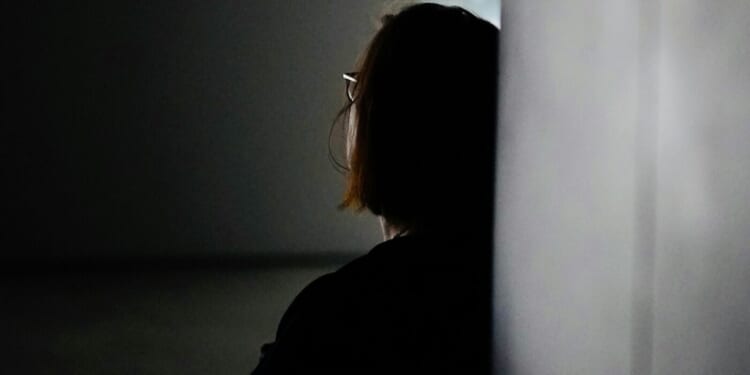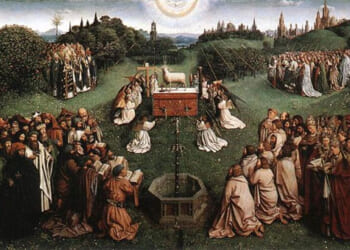Synergy: The interaction of two or more agents or forces so that their combined effect is greater than the sum of their individual effects
One of the appeals of the Sherlock Holmes mysteries is the unique talent of the private detective to see beyond the apparent facts of a crime. He discovers and tests what look like unrelated threads from a criminal event that, in the end, prove essential to the resolution of the case.
There is a similar dynamic at work when examining the unrelated threads of the digital tech revolution, the explosion in online gambling and pornography addiction, and complicated grief after abortion.
We are living in an age of fast-paced digital evolution. In the Netflix Documentary The Social Dilemma, some of the leading players in Silicon Valley sounded an alarm about the very products they helped design and disseminate.
Chamath Palihapitiya, a former senior executive at Facebook tells us, “We wanted to psychologically figure out how to manipulate you as fast as possible, and then give you back that dopamine hit.”
Tristan Harris, former Google design ethicist shares, “We were all looking for the moment when technology (e.g., Artificial Intelligence) would overwhelm human strengths and intelligence…But there’s this much earlier moment…when technology exceeds and overwhelms human weaknesses.”
Harris’s concern is powerfully validated with the proliferation of online gambling and pornography. Prior to the digital age, people wanting to engage in gambling or pornography had to leave their homes and find their way to a local bookie, casino, adult bookstore or theater.
With the digital age, those boundaries and buffers have been obliterated. Using their smart phones and tablets, consumers have immediate and unlimited access 24 hours a day. Applying the playbook of digital technology, gambling and porn sites have developed platforms that keep users glued to their screens and consuming their products.
In January 2025, a panel of public health experts, hosted by the Harvard T. H. Chan School of Public Health, sounded the alarm about what they saw as an exploding problem: internet gambling.
Shekhar Saxena, an adjunct professor of global mental health shares, “Tech makes sure the experience is seamless; the gambling industry makes it tantalizing; and the financial industry makes it possible to put your money in with just a click or a tap…”
But internet gambling is not limited to online casinos. You can’t view a televised athletic event without seeing a flood of ads for online sports betting. This is a dangerous combination for the millions of men and women who are vulnerable to problem gambling and addiction, especially young adults with brains still in development.
Then take all the bells and whistles that internet sites harness to engage young users, and add the powerful experience of human sexuality. With porn, it’s not just about creating and holding new customers—it’s the corruption and desecration of what is most intimate and sacred: our capacity to love, to create and nurture life.
Among U.S. adults 18-35, about 87% of men and 28.5% of women view pornography on a weekly basis. One in three young adults with a daily porn habit feel “down, depressed, or hopeless” (Porn Addiction Statistics for 2025).
So what does all of this have to do with pregnancy termination, in particular chemical abortion, which now represents more than 62% of all abortions?
John was part of a chemical abortion event with his live-in partner. The couple was shocked by the level of pain and bleeding associated with the process. Then their tiny preborn child was expelled in the toilet. John retrieved the little body and buried it in their backyard.
Their bedroom and bathroom became triggers for the couple’s traumatic memories and feelings. No longer was their home a place of comfort and emotional safety. It was now a constant reminder of their trauma and the loss they struggled to acknowledge and process.
The aftermath of a chemical abortion can be an especially confusing and traumatic experience. John turned to his ever-present cell phone and threw himself into sports gambling and pornography as a way to treat his anxiety, shame, and guilt. His girlfriend turned to alcohol, and later promiscuity, to cope with the depression, nightmares, and insomnia she experienced following the abortion.
The perpetual distractions, and temporary self-medication provided by immersion in social media, gambling sites, and pornography, can be especially alluring in the aftermath of abortion. This is often accompanied by an increase in substance abuse.
At the heart of abortion pain is complicated grief. Research and clinical experience reveal a clear and compelling connection between substance misuse, addiction, and complicated grief. But what makes an experience of loss complicated?
A natural experience of grief usually peaks in intensity within the first few months after a loss and then gradually subsides over time. Complicated grief fails to follow this course and stubbornly lingers, causing significant physical, emotional, and spiritual suffering.
Such complicated mourning can follow a sudden or traumatic death. But it can also flow from a loss that is not acknowledged and suffered in isolation. After abortion, women and men are left without a way to honor and process a very intimate and sensitive loss, nor one’s role in the preborn child’s death.
Fortunately, John and his partner learned of a healing program called Rachel’s Vineyard that they could attend together to process their painful loss. They experienced considerable emotional and spiritual healing. And with subsequent counseling support, they were able to confront their gambling, porn, and alcohol abuse.
It is important for people who work or volunteer in the fields of addiction treatment to understand the possible connection between complicated grief after abortion, substance abuse, and gambling and porn misuse and addiction. Providing information on and resources for healing the common symptoms of complicated grief after abortion should be an essential part of these treatment plans.
Thousands of our fellow citizens suffer in silence, searching for the light of understanding, and the hope of healing and peace. It’s time to raise awareness, and share the good news that healing and peace are, in fact, possible.
Author’s Note: Kevin Burke, MSS, and Theresa Burke, Ph.D., are the founders of Rachel’s Vineyard Ministries. Theresa is the author of Forbidden Grief: The Unspoken Pain of Abortion and Kevin, Tears of the Fisherman, Recovery for Men Wounded by Abortion.
Photo by Meizhi Lang on Unsplash












